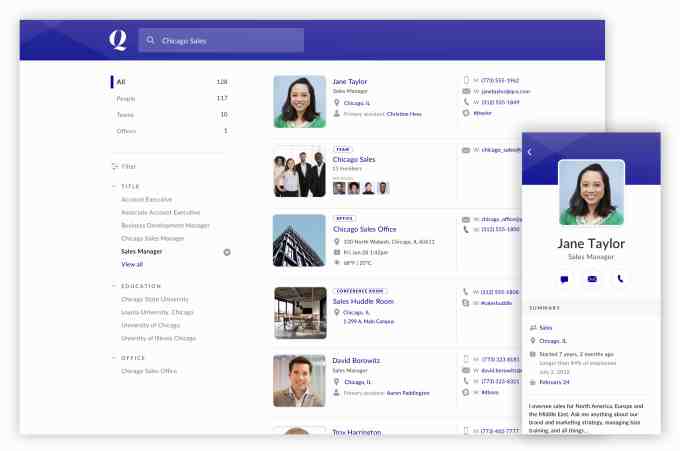The notion of the corporate directory has been around for many years, but in a time of more frequent turnover and shifting responsibilities, the founders of Rimeto, a 3 year old San Francisco startup, wanted to update it to reflect those changes.
Today, the company announced a $10 million Series A investment from USVP, Bow Capital, Floodgate and Ray Dalio, founder of Bridgewater Associates.
Co-founder Ted Zagat says that the founders observed shifting workplace demographics and changes in the way people work. They believed it required a better to way to locate people inside large organizations, which typically used homegrown methods or relied on Outlook or other corporate email systems.
“On one hand, we have people being asked to work much more collaboratively and cross-functionally. On the other, is an increasingly fragmented workplace. Employees really need help to be able to understand each other and work together effectively. That’s a real challenge for them,” Zagat explained.
Rimeto has developed a richer directory by sitting between various corporate systems like HR, CRM and other tools that contain additional details about the employee. It of course includes a name, title, email and phone like the basic corporate system, but it goes beyond that to find areas of expertise, projects the person is working on and other details that can help you find the right person when you’re searching the directory.

Rimeto directory on mobile and web. Screenshot: Rimeto
Zagat says that by connecting to these various corporate systems and layering on a quality search tool with a variety of filters to narrow the search, it can help employees connect to others inside an organization more easily, something that is often difficult to do in large companies.
The tool can be accessed via web or mobile app, or incorporated into a company intranet. It could also be accessed from a tool like Slack or Microsoft Teams.
The three founders — Zagat, Neville Bowers and Maxwell Hayman — all previously worked at Facebook. Unlike a lot of early stage startups, the company has paying customers (although it won’t share exactly how many) and reports that it’s cash-flow positive. Up to this point, the three founders had boot-strapped the company, but they wanted to go out and raise some capital to begin to expand more rapidly.